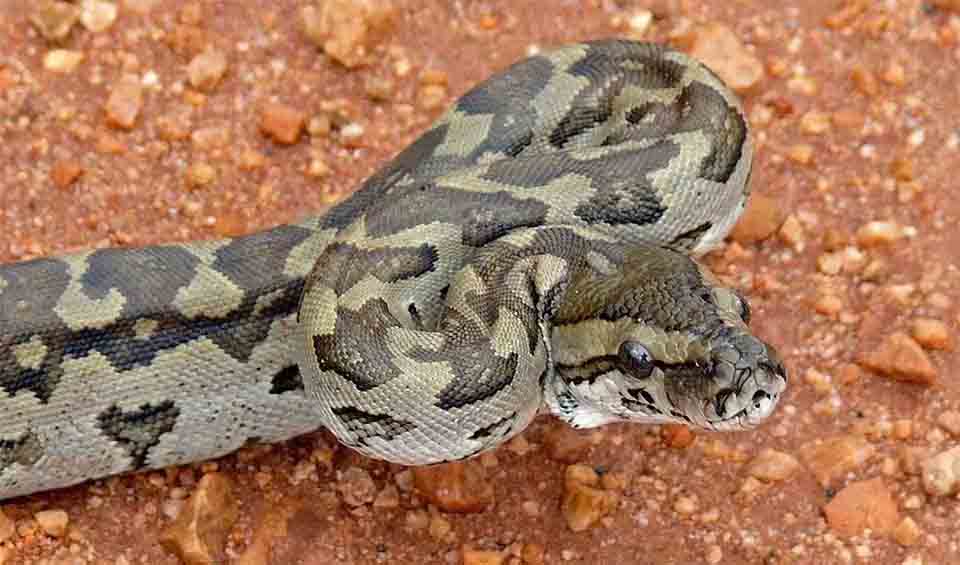One of Africa’s largest and most impressive snake species. Found across the southern regions of the continent, it thrives in a variety of habitats, including savannas, forests, grasslands, and even semi-arid areas, as long as water sources are nearby. It is known for its immense strength and adaptability, making it a dominant predator in its ecosystem.
This python’s coloration is a blend of brown, olive, and black, arranged in bold, irregular patterns that help it blend into the natural landscape. The Southern African rock python’s robust body and powerful muscles enable it to constrict and subdue prey with incredible efficiency. Its diet includes a wide range of animals, such as small antelope, warthogs, birds, and even crocodiles. Remarkably, it has been known to take down prey significantly larger than itself, showcasing its strength and hunting prowess.
The behavior of the Southern African rock python is both fascinating and intimidating. While it is non-venomous, it can be defensive when threatened, often hissing loudly and striking to deter potential predators, including humans. Despite its fearsome reputation, this python is not naturally aggressive toward humans and typically avoids conflict. It is largely nocturnal, often hunting at night and resting in burrows, caves, or dense vegetation during the day. During the breeding season, females exhibit exceptional maternal care, coiling around their eggs to protect and incubate them until they hatch.
Distribution
 Angola
Angola Botswana
Botswana Burundi
Burundi DR Congo (Kinshasa)
DR Congo (Kinshasa) Eswatini
Eswatini Kenya
Kenya Malawi
Malawi Mozambique
Mozambique Namibia
Namibia Rwanda
Rwanda South Africa
South Africa Tanzania
Tanzania Zambia
Zambia Zimbabwe
ZimbabweAnything we've missed?
Help us improve this page by suggesting edits. Glory never dies!
Suggest an editGet to know me
Terrestrial / Aquatic
Altricial / Precocial
Polygamous / Monogamous
Dimorphic (size) / Monomorphic
Active: Diurnal / Nocturnal
Social behavior: Solitary / Pack / Herd
Diet: Carnivore / Herbivore / Omnivore / Piscivorous / Insectivore
Migratory: Yes / No
Domesticated: Yes / No
Dangerous: Yes / No




